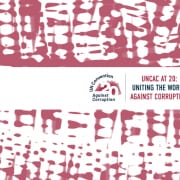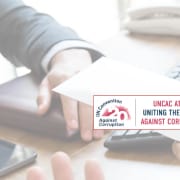|
Getting your Trinity Audio player ready...
|
By Moepeng Valencia Talane – CW Voices
They say you ought not to praise a fish for swimming. Equally we should not pile accolades on a democratically elected government for managing public resources and interests professionally, efficiently, competently, and within the confines of the law, in line with the principles of good governance that taxpayers expect of them. These duties are at the foundation of the commitment that potential government leaders promise their constituencies during electioneering: to be present, transparent, and ethical in their conduct.
An elected government should also seek progress at all times and be willing to subject itself to accountability in the delivery of its services, even where that progress is not easily realised. This entails receiving criticism for its flaws and missteps, and not just doing things for the sake of doing them.
So when Deputy President Paul Mashatile received applause from his audience for delivering a dry and unimaginative speech at the commemoration on 8 December of International Anti-corruption Day (IACD) in Pretoria, one would have thought he had shifted the paradigm in revealing the progress of government’s anti-corruption efforts. Instead, he had shared nothing new, committed his office and that of President Cyril Ramaphosa to nothing new, and merely ticked a box in a hollow account of this progress.
Don’t get me wrong, there is nothing wrong with applying decorum in a public platform and marking the end of an address of a speaker with the clapping of hands. In fact, it’s part of the order of business in such things, but it is quite telling in circumstances where such speaker does not allow for an interactive engagement and open himself up to mere questioning by the same audience, to help him gauge how the content of his speech has landed.
In his speech, Mashatile told the room: “We need to understand how corruption manifests itself. We need active citizenry, the people’s participation in the transformation process, and fighting any form of corruption.
“In this regard, we have introduced measures to tackle state corruption and patronage, including oversight visits by Parliament and legislatures, spot checks in departments, investigations by our Chapter 9 institutions, and measures such as lifestyle audits of public servants and stopping public servants from doing business with the government.”
He delivered this to a room full of people who surely did not expect to be told what is already known, and what is already expected of public institutions, but who would have benefited from concrete progress updates that speak to government decisively tackling corruption as a challenge to its success.
The rest of the speech was no better, a rehashing of information that is already in the public domain, mainly about measures that government has put in place to respond to the recommendations of the state capture commission. For good measure, Mashatile threw in the usual rhetoric about upholding the principles of good governance and the fight against corruption being all-inclusive and not only the burden of government.
Needless to say, despite this being the keynote address of the day, it was a “duh” moment of sorts, particularly in this climate of despondency and dejection that many South Africans find themselves in, having to deal with an unhealthy economy ahead of next year’s elections.
Sadly, what Mashatile and co do not appear to grasp is that government’s annual commemoration of the IACD, which falls on 9 December, is usually a useful tool for the public, and particularly for civil society, to gauge the responsiveness of the executive arm of government to the temperature on the ground in reply to their anti-corruption efforts. It is an opportunity to ascertain whether the pervasiveness of corruption and maladministration of public resources, and its impact on basic service delivery, is increasing or diminishing in the eyes of the public whose confidence they seek.
It is not a mere exercise of showing face and acknowledging that there is a corruption problem, year in and year out, and then leaving the event for the rest of the delegates to ponder the size of the problem of corruption, and then come up with solutions.
The business-as-usual approach to this very important event – cemented in South Africa’s ratification of the UN Convention Against Corruption – cannot continue. Instead of it being treated as a by-the-way affair on the calendar, the IACD should be led with vigour and positive commitment that encourages South Africans to resist corrupt leaders and not partake in the scourge.
Too many opportunities have been lost to corruption in our country, too much money has been looted out of the public purse, and too many whistle-blowers have been silenced, mistreated, attacked, and killed for Mashatile to treat the occasion in the way it was.
It was with great pride that this year, for the first time, we witnessed the staging of a silent protest by civil society organisations during the proceedings, highlighting the dire plight of whistle-blowers who receive no protection or support.
May civil society organisations continue to be encouraged to expose the government’s casual attitude towards this important day in our calendar, and may they challenge the Mashatiles of this country to give more meaning to their engagements with the activities of the IACD.
We cannot afford the business-as-usual, complacent attitude of our leaders toward corruption and towards events that highlight the urgency needed to deal with it.








